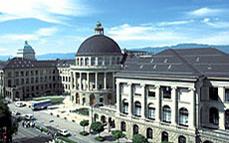

Campus Sustainability Networks
- Australasian Campuses Towards Sustainability (ACTS)
- International Sustainable Campus Network
- Northeast Campus Sustainability Consortium (NECSC – USA)
- Association for the Advancement of Sustainability in Higher Education
- Network of Networks (University of Tokyo) – Networks for Sustainable Campus
- UK Evironmental Association of Universities and Colleges
IARU Presidents' Statement on Campus Sustainability
Addressing the impacts of climate change is one of the greatest challenges facing the global community. While individual commitment to modifying the human impact on the environment is needed, this response must be lead by governments, industry and academia.
The International Alliance of Research Universities (IARU), comprising 10 of the world's leading Universities, has committed to providing leadership that will influence their respective regional communities and encourage engagement by others at an international level. The members began collaborating on issues of sustainability in 2006 with the establishment of sustainability principles. This collaboration has lead to the development of cross cultural exchanges to promote best practice in campus sustainability. Projects have begun to emerge on measuring and addressing the environmental impacts of the campus activities that the members' institutions have in common, such as accommodation services, commuter transport, air travel, renovation, new construction, campus and grounds maintenance.
As the next stage in this process, members have established programs to assess and reduce the overall environmental impact of University activities. The targets listed in the table below are based on detailed institutional reviews of operations. As a consequence they reflect institutional differences, such as the maturity of the respective University campus sustainability programs, as well as regional issues, such as climate conditions, energy sources and projected growth.
These initial targets primarily focus on reducing the carbon impact of energy use. However, over time, the IARU is committed to expanding its programs to reduce the impact in other areas of operation and as a result of travel.
The availability of historical data on energy use varies from University to University. Hence, each member has established a base year for measurement that provides the most accurate information about campus energy consumption. The main focus of the various strategies will be the outcome: the reduction of the campus carbon footprint.
IARU Greenhouse Gas Reduction Targets - 2009
| University | Targets |
| ANU |
35% below 2006 levels by 2020 100% offset of fleet emissions by 2009 100% offset/reduction of air travel emissions by 2014 |
| Berkeley | Back to 1990 levels by 2014 |
| Cambridge | 10% below 2005 levels by 2010/2011 for building related emissions |
| Copenhagen | 20% below 2006 levels by 2013 |
|
ETH Zurich |
10% reduction in CO2 below 1990 levels. In more detail: - Reduce CO2 emissions from heating by 50% for the âScience Cityâ Campus by 2020. Base year 2004. This campus is responsible for most of the CO2-emissions at the ETH Zurich. - Reduce energy consumption by 10% in some buildings at ETH. |
|
NUS |
Energy & heat: 1. 15% reduction in our existing buidling emissions by 2015. 2. 20% reduction in laboratory energy consumption benchmarked against standard regularized laboratory consumption by 2015. 3. 25% reduction in future building emissions benchmarked against existing building energy consumption norms by 2015. Air miles: 100% offset in carbon emissions by routing equivalent carbon fees to campus green/energy efficiency projects. Campus fleet emissions: 100% offset in carbon emissions by using alternative fuels/greener vehicles and routing remaining carbon fees to campus green/energy efficiency projects. |
| Oxford | 20% of building related CO2 emissions below 1990 levels by 2010, real progress by 2020 and 60% by 2050 based on 1990 levels. |
| Peking | 15% per floor area below 2005 levels by 2010 (Short term goal). Currently reviewing for long term goal. |
| Tokyo | 15% of CO2 emission from non-experimental sector below 2006 by 2012 |
| Yale | 43% below 2005 levels by 2020 |
In achieving these goals, the IARU estimates that carbon emissions will be reduced by approximately 2M tonnes over the next 10 years. From 2020, emissions will be reduced by approximately 340K tonnes per annum against business as usual.
The IARU will report annually on performance against these targets from 2010 and these targets will be reviewed against any new regional or international goals that are established following COP15 Copenhagen 2009 (United Nations Climate Change Conference).
The University sector will also have a leading role in developing strategies and technologies to address global environmental challenges, particularly global climate change.
With this in mind, the IARU makes the following commitments:
- To work together, where appropriate, on research that broadens the understanding of climate change and related sustainability issues, including the development of governance, social, economic and technological responses to global warming.
- To build the ecological literacy of their campus communities, with particular emphasis on our graduates who are tomorrow's leaders.
27 February 2009
!!! This document is stored in the ETH Web archive and is no longer maintained !!!
